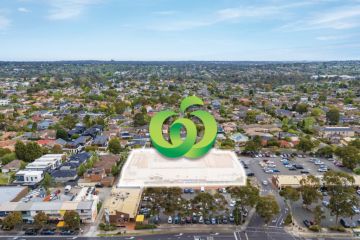What is counter-cyclical investment?

When it comes to buying and selling property for investment, everyone wants to be ahead of the curve. Yet most people end up becoming part of it because they lack the confidence to buy when the market is low or let the property go while prices may still be rising.
Here we explain what it means to invest against the cycle, the risks and benefits, and how best to determine your ideal time to buy and sell in the property market.
What is counter-cyclical investment?
“Counter-cyclical investment is about trying to pick the winner against the trend,” explains Dr Andrew Wilson, senior economist at Domain Group.
That is, acting against the property cycle when everyone is piling into the market to buy a property amid rising prices, you use the increased demand to sell in the hope of netting a tidy profit. Conversely, when everyone is fearful and reluctant to invest in property, or are desperately trying to offload properties to stem their losses, you buy up big to take advantage of cheaper prices.
Risks versus benefits
Of course, there are risks and benefits to every investment strategy. In this instance, the biggest risk is also the most enticing attribute: you are not doing what everyone else is.
This means that you don’t have the protection of the ‘safety in numbers’ mentality, yet it also allows you to focus on opportunities to which your competition are turning a blind eye. Although, the potential benefits of cashing in when other people are throwing their money around, or bagging a bargain when owners are desperate to sell in a struggling market, could potentially make an enormous difference to your bottom line.
However, before buying when everyone else is selling, consider that:
- There may be a poor economic outlook and rising unemployment, which could affect the future value of your investment and your own employment prospects.
- Lenders may be unwilling to fund new loans, making it difficult for you to raise the necessary credit.
- Should your circumstances change and you need to sell the property, it may be worth less than you paid for it.
Conversely, when selling in a growth market:
- You may miss out on capital growth if the market rises considerably after you have sold.
- Your re-entry costs may be higher once you decide to buy again.
Right time to buy/sell
Everyone wants the holy grail of identifying the best time to buy and sell for maximum profit. In truth, there really is no one perfect time.
The key to determining when you should buy and sell, according to Dr Wilson, is to look at your own circumstances rather than everyone else’s.
“The property market always has ebbs and flows, which attracts people during upturns and then puts people off during downturns,” he says. “However, property investment is different to, say, equities as it tends to be a medium to long-term strategy rather than short-term speculation. But for a medium to long-term strategy, it is less important as to when you buy in the property cycle because it will depend where you are in your own investment cycle. It is all about the durability of your own investment strategy.”
Whether you choose to invest against the cycle or with the trend is ultimately a matter for your own confidence. Yet no matter which way you go, the only real chance of success in property investment is to do your research then stick with a strategy that works for you, regardless of what others in the market may be doing.
We recommend
We thought you might like
States
Capital Cities
Capital Cities - Rentals
Popular Areas
Allhomes
More
- © 2025, CoStar Group Inc.







